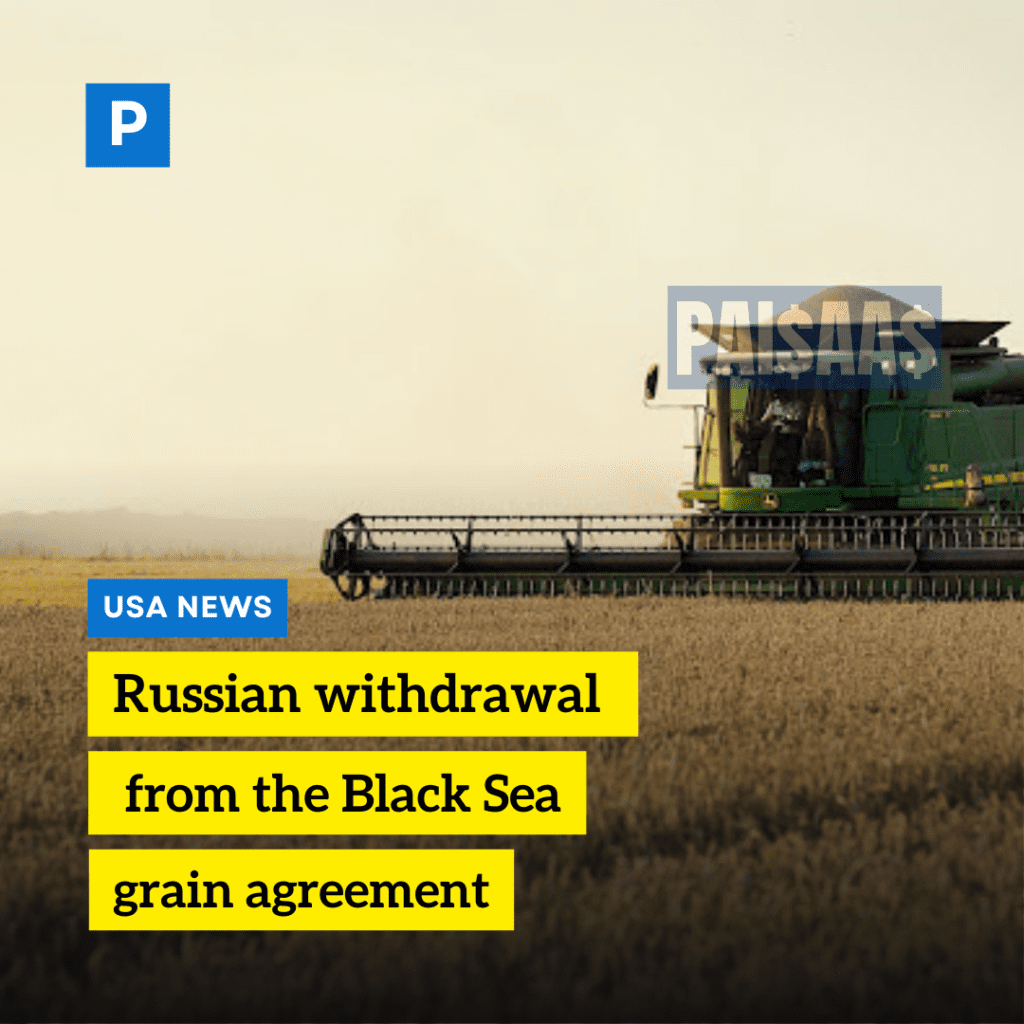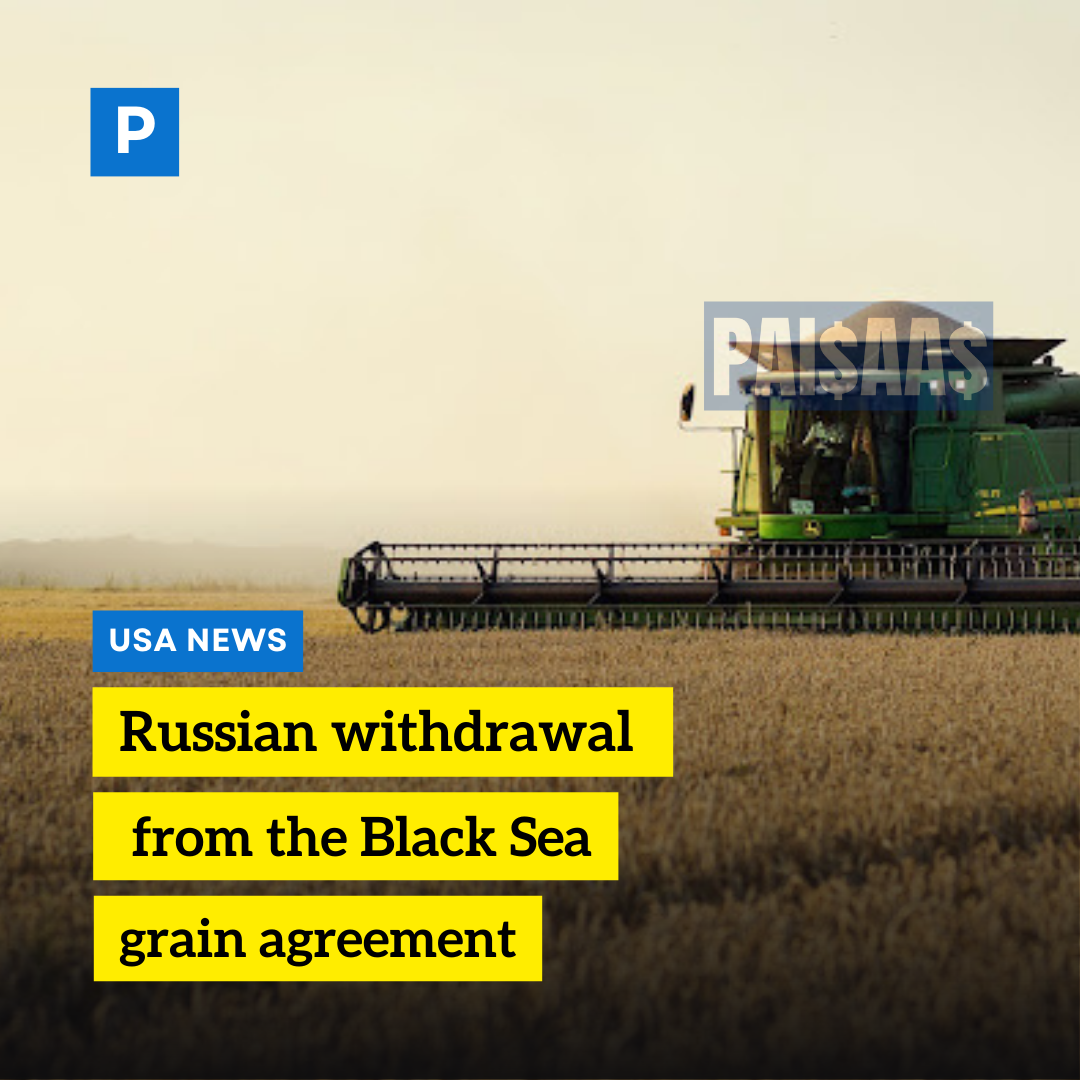

Russian withdrawal from the Black Sea grain agreement
Russian withdrawal from the Black Sea grain agreement
Russia announced on Monday that it was terminating an agreement that had allowed Ukraine to export its grain by sea despite Russia’s naval blockade. This agreement had served to keep global food prices stable and alleviated one aspect of the global impact from the war. Russia’s decision to terminate the agreement came as a surprise to the international community because Russia had previously been a party to the agreement.
The decision has “deeply disappointed” António Guterres, the Secretary General of the United Nations, who noted that Ukraine is a significant producer of grain and other foodstuffs. According to him, “the price” will be “paid” by millions of people who are at risk of starvation or who are already struggling, as well as by consumers all over the world who are contending with an increase in the cost of living.
He then went on to tell the journalists, “Today’s decision by the Russian Federation will strike a blow to people in need wherever they may be.”
Earlier on Monday,
a spokesperson for the Kremlin named Dmitri S. Peskov confirmed to journalists that the agreement had been “halted.”
“As soon as the Russian part is fulfilled, the Russian side will immediately return to the implementation of that deal,” he said. “That deal will be implemented immediately.” He also stated that the decision had nothing to do with the attack that took place a few hours earlier on the bridge that crosses the Kerch Strait and connects Russia to seized Crimea. Russian authorities have placed blame for the strike on Ukraine, although the Ukrainian government has not admitted any wrongdoing.
Russia has consistently voiced its dissatisfaction with the agreement,
which it views as being unfairly weighted in favour of Ukraine. In a statement that was released on Monday, the Russian Ministry of Foreign Affairs emphasised Russia’s objections, including what it described as continued Ukrainian “provocations and attacks against Russian civilian and military facilities” in the Black Sea region. The statement also stated that the United Nations and Ukraine’s Western allies had not addressed Russian demands.
“Only upon receipt of concrete results, and not promises and assurances, will Russia be ready to consider restoring the ‘deal,'” the statement added. “Only then will Russia be ready to consider restoring the ‘deal.'”
Following the most recent in a string of relatively short-term extensions, the pact, which is known as the Black Sea Grain Initiative and was mediated by the United Nations and Turkey, was scheduled to come to an end on Monday.
Recep Tayyip Erdogan, the president of Turkey,
has indicated that he will discuss the agreement with Vladimir V. Putin, the president of Russia, and that he is hopeful that the accord may be brought back to life.
Mr. Erdogan was speaking to reporters in Istanbul when he made these comments. “Despite the statement made today, I believe the president of the Russian Federation, my friend Putin, wants the continuation of this humanitarian bridge,” Mr. Erdogan said.
Given that Ukraine had established a separate deal with the two mediators over grain, the President of Ukraine, Volodymyr Zelensky, stated that Moscow had breached its agreement with the United Nations and with Mr. Erdogan rather than with his own country itself. He stated this because Ukraine had struck a separate contract with the two mediators. Before any discussions can take place, Ukraine has insisted that all Russian military leave its territory immediately and that the country’s neighbours stop their aggressive behaviour.
In statements that were communicated to the press by Mr. Zelensky‘s press office,
he stated that “even without the Russian Federation, everything must be done so that we can use this Black Sea corridor,” and he added that Ukraine was ready to restart exports if the United Nations and Turkey agreed to do so.
The agreement successfully alleviated shortages that were brought on by blockades in the first few months of the war. This led to an increase in the price of wheat across the globe. It gave Ukraine the ability to resume the export of millions of tonnes of grain that had been stalled for months, and it has been renewed many times, most recently in the month of May. The price of wheat experienced significant swings on Monday, putting vulnerable nations at risk of a fresh round of food insecurity as a result.
However, Moscow has complained that Western sanctions continued to impede the sale of its own agricultural products, and it has demanded guarantees that would facilitate the country’s exports of grain and fertilisers. Last week, in an effort to keep the agreement in place for a longer period of time, Mr. Guterres gave Mr. Putin some ideas that he claimed would “remove hurdles affecting financial transactions” through Russia’s agricultural bank.




